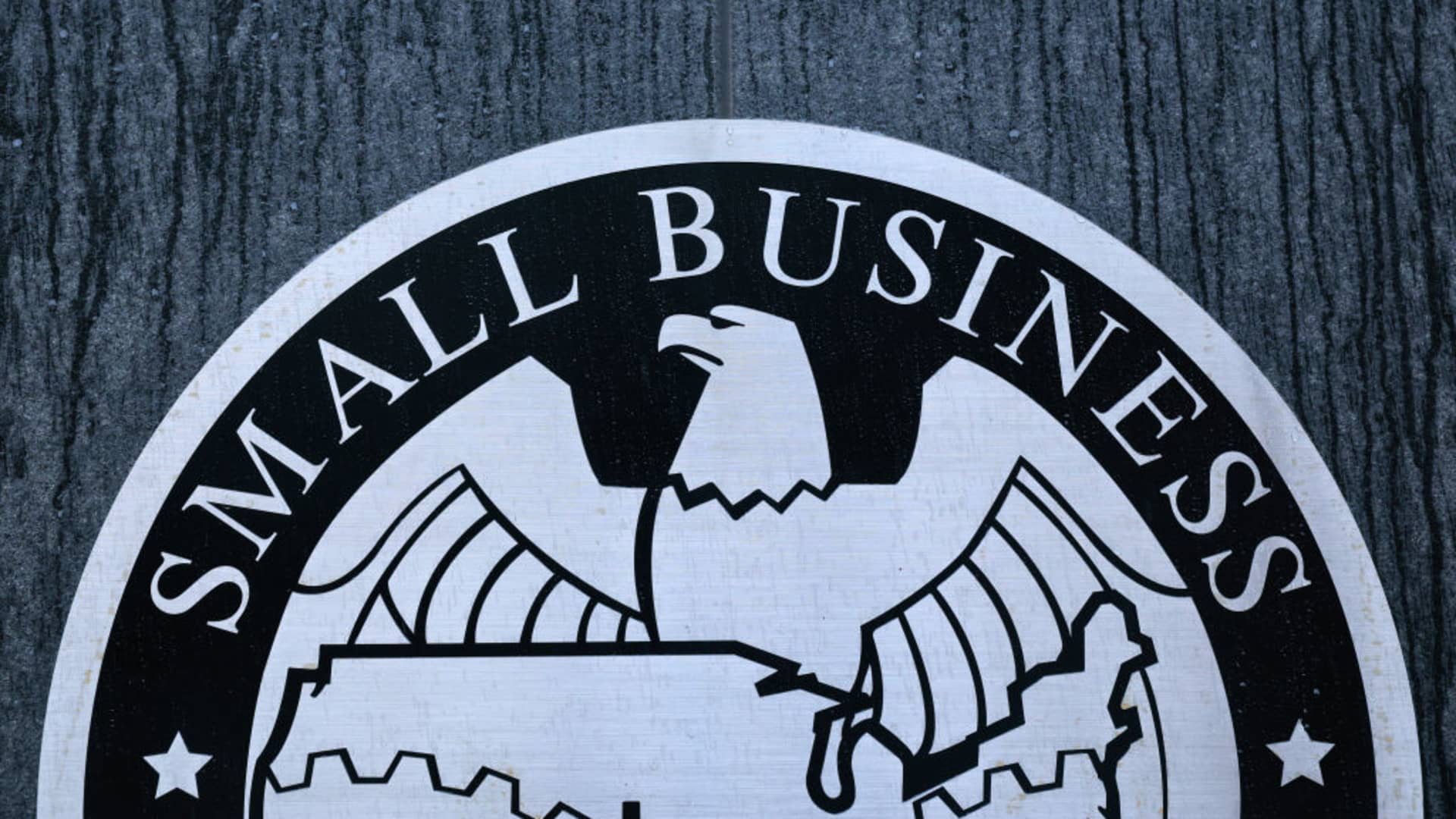Chip Somodevilla | Getty Images News | Getty pictures
It is often said that the economic reality in Main Street does not match the mood on Wall Street, but at the moment small business owners fits with increasing trust after a rocky start to 2025.
After a significant decline in the trust of the small business in the second quarter in relation to President Trump's political explanations of President Trump, almost half of the small business owners (46%) now say that according to the quarterly CNBC | Surveymonkey survey of 30% in the second quarter of 30% is “excellent” or “good” compared to the second quarter.
The improved feeling extends across party borders. 24% of small business owners who are democrats who describe the economy as good or excellent of 8% in the second quarter. A similar increase in republican small business owners increased, with 67% being a positive overview of the economy and 15 points higher than in the previous quarter.
The CNBC | Surveymonkey Small Business Confidence Index rose from 51 in the previous quarter to 56 – which Trump's lowest brand was in this survey, except during the Covid outbreak of his first term. The biggest step was under Democrats, among which the mood in the previous quarter improved from 33 to 41. The trust of the Republicans was a steady quarter over the quarter at the age of 68, while the independent people were 47 close to the previous quarter (45).
“Small entrepreneurs who identify as Democrats report on the greatest increase in the mood,” said Sam Gutierrez, Senior Research Scientist at Surveymonkey. “They are much more optimistic about terms and conditions compared to the previous quarter. Optimism also seems to rise among republican business owners: Less now thinks that the country is getting into a recession.”
The survey audience is a representative sample of small businesses in the United States, which conservatively distorts in political identification. The online survey was carried out by Surveymonkey from July 7th to 10th, 2025 under a national sample of 1,900 self-identified small business owners aged 18 and over.
The improved mood has led to a higher approval for President Trump. With confidence among the small entrepreneurs in relation to his handling of the task of the presidency, the chair increased from 48% in the second quarter to 57% in this quarter, although the partisan gap remains wide. 90% of Republicans expressed support and only 18% of the Democrats.
In most basic measurements of business confidence, the numbers have increased: 44% describe the current terms and conditions as good, of 36% in the previous quarter. Over half (51%) of small companies expect sales over the next 12 months, compared to 41% in the second quarter. 28 percent state that they will increase the headquarters over the next 12 months, compared to 22% in the second quarter.
At the same time, an increasing percentage of small business owners, especially the generations of gene Z and Millennial, use more AI and quickly find a positive impact on business and consequently expects less attitude over time.
Economic fears have not completely disappeared. In fact, concerns about the recession and tariffs remain high among most small business owners. But they go down. Those who believe that the country is on the way to a recession is now 61% of 70% in the second quarter. Fewer small business owners state that they were affected by tariffs or that in the future 66% will be 59% in the second quarter.
Fewer small business owners now call tariffs than their greatest risk of 17% in the second quarter to 10% in a quarter. Inflation remains the greatest concern of small business owners, with a little more than one of five (22%) rising prices, followed by the demand from consumers (18%).
“Small business owners feel more secure overall. As fears about the effects of tariffs after deposits after a severe decline in the last quarter, there are an upswing in business performance,” said Gutierrez.
But when the fears of trading policy decrease, the concerns about the demand from consumers in Main Street are right with a Wall Street care. For example, Goldman Sachs expects the US economy to slower due to tariffs and inflation and its effects on consumer expenditure. “Even a one -time price increase is eaten in a real income at a time at a time when the trends of consumer expenditure already look shaky,” wrote the chief economist by Goldman, Jan Hatzius, in a recent note to customers.
The survey data are near the first quarter to re -election, but before he unveiled the collective bargaining policy, which shook the market and led to a widespread uncertainty among the companies in April. Now views on government policy are also tended in a positive direction:
In the past quarter, 44% of the business owners expected state regulations over the next 12 months that would have a negative impact on their business. That has now dropped to 36%.
The views of trade policy have also improved, and 40% of the business owners stated that this will have negative effects next year, which has 51% compared to this view in the last quarter.
And when President Trump passed his signature tax and expenditure calculation, the percentage of small business owners who are negative in the next year would be 37% back to 32%.
Even if the figures of the small business owners are improving, the support for tariff policy according to partisan peaks remains strongly divided. Trump's tariff policy supports one -hour percent of republican respondents, while 87% of the Democrats oppose. Small entrepreneurs who identify themselves as independent are much closer to the Democrats in the tariffs. 71% stated that they are against it.
On Wednesday, August 6th at 2 p.m., take the free virtual event of CNBC Small Business Playbook and receive essential strategies for entrepreneurs to adapt, grow and thrive in today's economy. Register here: https://bit.ly/4koowas
